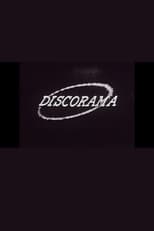
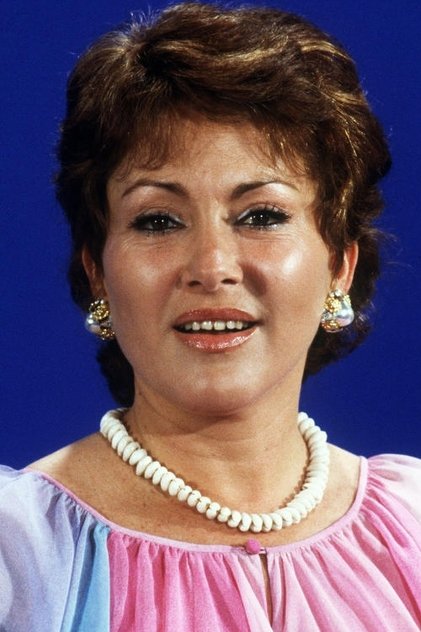
Rika Zaraï
Born: February 19, 1938
Died: December 23, 2020
in Jerusalem, Palestine [now Israel]
Died: December 23, 2020
in Jerusalem, Palestine [now Israel]
Rika Zaraï (Hebrew: ריקה זראי; 19 February 1938 – 23 December 2020) was a Franco-Israeli singer and writer.
Rika Gozman (later Zarai) was born in Jerusalem. Her father came from Odessa (now Ukraine) in the Russian Empire, and her mother from Valozhyn (now Belarus), then in Poland.
She passed her baccalaureate at the age of 17 and enlisted directly in the Israel Defense Forces, a year before her compulsory service would have drafted her. She attended the Jerusalem Music Conservatory where she obtained a first prize in piano. During her 18 months of army service, she was appointed producer of the entertainment troupe of the IDF Central Command.
On November 9, 1969, she was the victim of a car accident. The singer sank into a coma for six days and remained immobilized in a cast for eight months. Despite a reserved medical prognosis, she recovered completely after three years. It was during her painful convalescence that Rika composed, as a snub to her suffering, the song Balapapa, with joyful lyrics and which would be a great success.
In addition to her musical career, Rika Zaraï distinguished herself in the promotion of herbal medicine from the 1980s. After having studied alternative medicine for eleven years, she published under her name in 1985 a book Ma médecine naturelle (English: My natural medicine), which has sold 2 million copies. Its positions in this field have met with strong opposition, particularly from French pharmacists.
On June 3, 2008, Rika Zaraï was hospitalized urgently following a stroke. She was placed in intensive care at the Pitié-Salpêtrière Hospital, suffering in particular from partial paralysis on the left side of the body.
In the 1950s, the Israeli writer, Aharon Megged, wrote a musical for the IDF Central Command entertainment troupe about five soldiers falling in love with five country girls. In 1956, it was produced commercially by the Ohel theater starring Rika Zarai. The music was written by her husband Yochanan Zarai, with lyrics and melodies by Naomi Shemer.
In 1969, Zarai rose to fame with her songs Casatschok and Alors je chante, the French version of Vivo Cantando. She went on to have a successful career in Europe, where she popularized Israeli classic songs such as Hava Nagila, Yerushalayim shel zahav and Hallelujah.
After publishing other books in the 1990s and continuing to study health, she returned to singing in 2000 with the album Hava. She sang at the Queen in Paris in 2000, and the oriental version of Hava nagila was successful in nightclubs where she sang until 2004.
On February 3, 2020, twelve years after her stroke, she sang in public during the Night of the Depression party organized by Raphaël Mezrahi at the Folies Bergère in Paris.
Zarai sang in Hebrew, English, French, Italian, Spanish and German. She lived in Paris but visited Israel periodically.
Source: Article "Rika Zaraï" from Wikipedia in English, licensed under CC-BY-SA 3.0.
Rika Gozman (later Zarai) was born in Jerusalem. Her father came from Odessa (now Ukraine) in the Russian Empire, and her mother from Valozhyn (now Belarus), then in Poland.
She passed her baccalaureate at the age of 17 and enlisted directly in the Israel Defense Forces, a year before her compulsory service would have drafted her. She attended the Jerusalem Music Conservatory where she obtained a first prize in piano. During her 18 months of army service, she was appointed producer of the entertainment troupe of the IDF Central Command.
On November 9, 1969, she was the victim of a car accident. The singer sank into a coma for six days and remained immobilized in a cast for eight months. Despite a reserved medical prognosis, she recovered completely after three years. It was during her painful convalescence that Rika composed, as a snub to her suffering, the song Balapapa, with joyful lyrics and which would be a great success.
In addition to her musical career, Rika Zaraï distinguished herself in the promotion of herbal medicine from the 1980s. After having studied alternative medicine for eleven years, she published under her name in 1985 a book Ma médecine naturelle (English: My natural medicine), which has sold 2 million copies. Its positions in this field have met with strong opposition, particularly from French pharmacists.
On June 3, 2008, Rika Zaraï was hospitalized urgently following a stroke. She was placed in intensive care at the Pitié-Salpêtrière Hospital, suffering in particular from partial paralysis on the left side of the body.
In the 1950s, the Israeli writer, Aharon Megged, wrote a musical for the IDF Central Command entertainment troupe about five soldiers falling in love with five country girls. In 1956, it was produced commercially by the Ohel theater starring Rika Zarai. The music was written by her husband Yochanan Zarai, with lyrics and melodies by Naomi Shemer.
In 1969, Zarai rose to fame with her songs Casatschok and Alors je chante, the French version of Vivo Cantando. She went on to have a successful career in Europe, where she popularized Israeli classic songs such as Hava Nagila, Yerushalayim shel zahav and Hallelujah.
After publishing other books in the 1990s and continuing to study health, she returned to singing in 2000 with the album Hava. She sang at the Queen in Paris in 2000, and the oriental version of Hava nagila was successful in nightclubs where she sang until 2004.
On February 3, 2020, twelve years after her stroke, she sang in public during the Night of the Depression party organized by Raphaël Mezrahi at the Folies Bergère in Paris.
Zarai sang in Hebrew, English, French, Italian, Spanish and German. She lived in Paris but visited Israel periodically.
Source: Article "Rika Zaraï" from Wikipedia in English, licensed under CC-BY-SA 3.0.
Movies for Rika Zaraï...
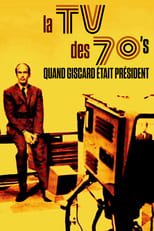
Title: La TV des 70's : Quand Giscard était président
Character: Self (archive footage)
Released: January 7, 2022
Type: Movie
In May 1974, Valéry Giscard d'Estaing became President of the Republic and wanted to bring about a new era of modernity. One of his first decisions was to break up the ORTF with the creation of three new television channels: TF1, Antenne 2 and FR3. Three new public channels but autonomous and competing. It is a race for the audience which is engaged then, and from now on the channels will make the war! This competition will give birth to a real golden age for television programs, with variety shows in the forefront. The stars of the song are going to invade the living rooms of the French for their biggest pleasure. This unedited documentary tells the story of the metamorphosis of this television of the early 1970s, between freedom of tone, scandals, political intrigues and programs that have become mythical.





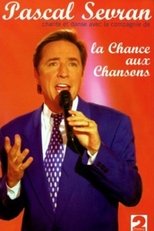



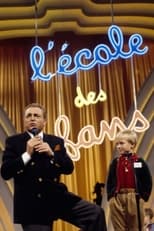
Title: Fan School
Character: Self
Released: January 30, 1977
Type: TV
Host Jacques Martin invites different talented children from various backgrounds to showcase their beautiful voices. The participants entertain and wow the audience with their lovely performances.




Title: Les Rendez-vous du dimanche
Character: Self
Released: January 12, 1975
Type: TV
A talk show presented by Michel Drucker


Title: Midi Première
Character: Self
Released: January 6, 1975
Type: TV
Midi Première is a French variety show presented by Danièle Gilbert, directed by Jacques Pierre and broadcast from January 6, 1975 until January 1, 1982 on TF1. The program was generally broadcast between 12:15 p.m. and 12:55 p.m., then giving way to the 1:00 p.m. TV news. However, the broadcast schedule could change, depending on the guests, and the setting where the recording of the program was shot. Certain performances by artists who have become cult like the one where Ringo jostles with a demonstrator in interpretation (1977), that of Dalida with the title There is always a song with the soundtrack that does not start, twice, at the right speed (1978), Claude François and his Clodettes, who, in the provinces, are unable to join "the set" in order to interpret his song, the latter being taken by the crowd of delirious fans (summer 1977) . The group Supertramp performed there with the title "Dreamer" on March 8, 1975.







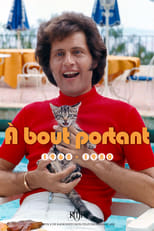

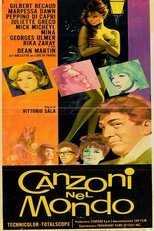
Title: 38-24-36
Character: Self
Released: March 31, 1963
Type: Movie
The film is a rundown of the songs sung by the stars of the time, chained to various shows such as strip and comic caricatures.

